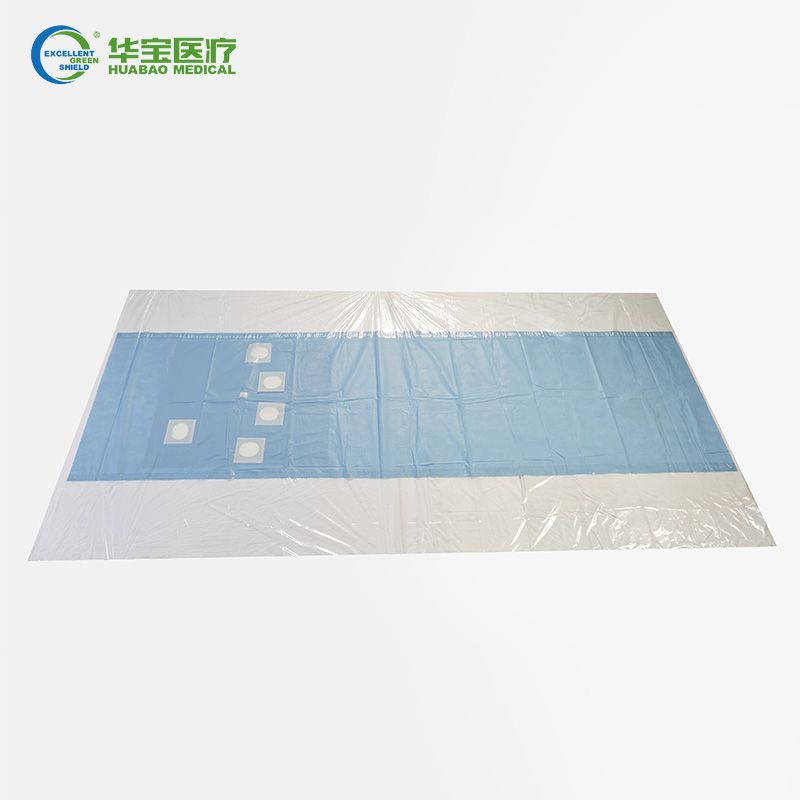What is the purpose of surgical drapes?
Surgical drapes serve several important purposes in the operating room during surgical procedures. These drapes are large sheets of sterile material that are used to cover patients and create a barrier between the surgical site and the surrounding non-sterile environment. Here are the primary purposes of surgical drapes:
Infection Control:
The primary purpose of surgical drapes is to prevent the transmission of microorganisms from non-sterile areas to the surgical site and vice versa. By creating a sterile field around the incision site, surgical drapes help reduce the risk of surgical site infections (SSIs) and other postoperative complications.
Maintaining Sterility:
Surgical drapes are made from materials that have been sterilized, and they are applied in a way that maintains a sterile field over the surgical site. This is crucial for preventing contamination and ensuring aseptic conditions during the entire surgical procedure.
Fluid Management:
Disposable surgical drapes can involve the use of liquids, such as blood and irrigation fluids. Drapes are designed to absorb and control the flow of fluids away from the surgical site, preventing contamination of the surrounding areas and maintaining a clear field of vision for the surgical team.
Barrier Protection:
Surgical drapes act as a physical barrier between the surgical team, the patient, and the surrounding environment. This barrier helps prevent contact between non-sterile surfaces and the surgical site, reducing the risk of introducing pathogens or contaminants.
Comfort and Safety for Patients:
Drapes provide a covering for patients to ensure their modesty and comfort during surgery. They also contribute to patient safety by preventing inadvertent exposure to surgical instruments or fluids.
Facilitating Sterile Setup:
Surgical drapes are part of the overall sterile setup in the operating room. They are positioned to create a designated sterile field where the surgical team can work without compromising the integrity of the surgical site.
Ease of Use and Customization:
Surgical drapes are designed to be easy to handle and apply. They come in various sizes and shapes to accommodate different surgical procedures and body areas. The design allows for precise placement to cover only the necessary areas while maintaining sterility.
Regulatory Compliance:
Compliance with regulatory standards and guidelines is essential in healthcare settings. The use of surgical drapes is often mandated by health regulatory bodies to ensure that surgical procedures adhere to established infection control practices.
In summary, Medical ues surgical drapes play a crucial role in maintaining a sterile environment during surgical procedures. They contribute to infection control, protect the patient and surgical team, and help ensure the overall success and safety of surgical interventions.

评论
发表评论